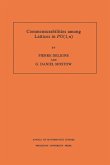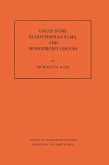Karl Åström and Richard Murray use techniques from physics, computer science, and operations research to introduce control-oriented modeling. They begin with state space tools for analysis and design, including stability of solutions, Lyapunov functions, reachability, state feedback observability, and estimators. The matrix exponential plays a central role in the analysis of linear control systems, allowing a concise development of many of the key concepts for this class of models. Åström and Murray then develop and explain tools in the frequency domain, including transfer functions, Nyquist analysis, PID control, frequency domain design, and robustness. They provide exercises at the end of every chapter, and an accompanying electronic solutions manual is available. Feedback Systems is a complete one-volume resource for students and researchers in mathematics, engineering, and the sciences.
- Covers the mathematics needed to model, analyze, and design feedback systems
- Serves as an introductory textbook for students and a self-contained resource for researchers
- Includes exercises at the end of every chapter
- Features an electronic solutions manual
- Offers techniques applicable across a range of disciplines
Dieser Download kann aus rechtlichen Gründen nur mit Rechnungsadresse in A, B, BG, CY, CZ, D, DK, EW, E, FIN, F, GR, HR, H, IRL, I, LT, L, LR, M, NL, PL, P, R, S, SLO, SK ausgeliefert werden.









